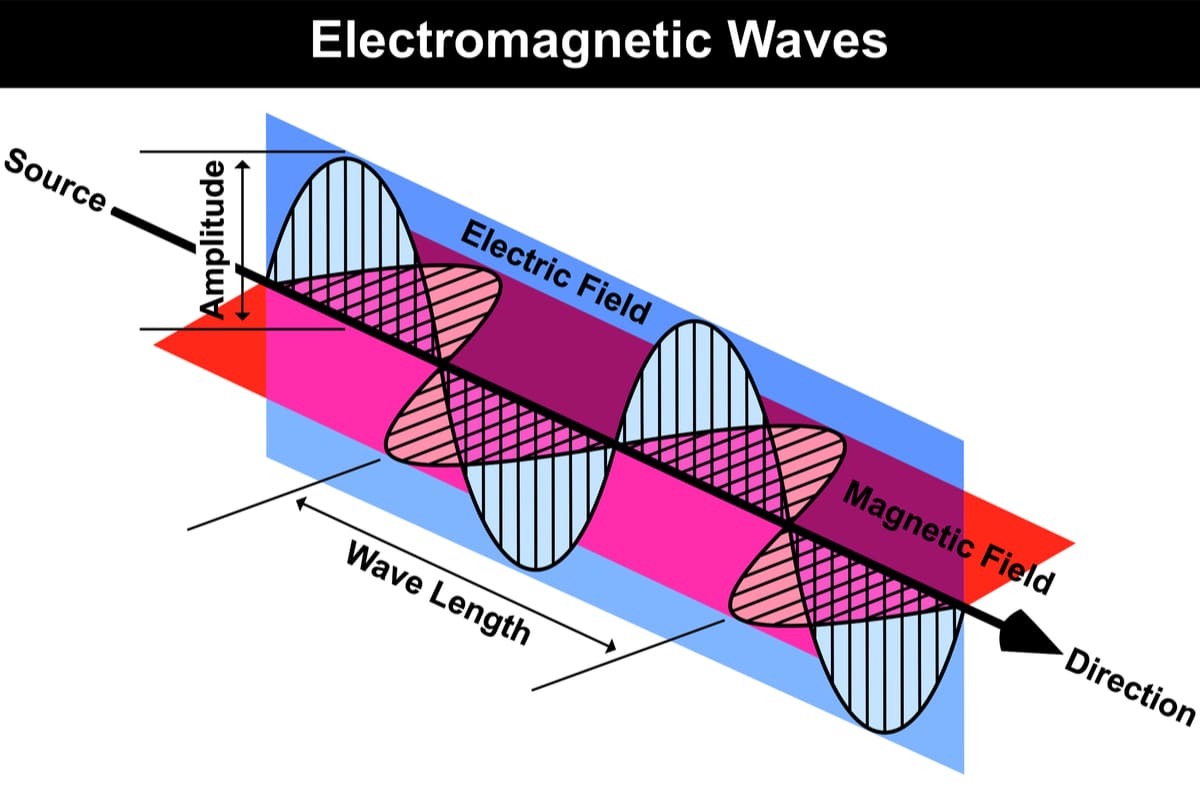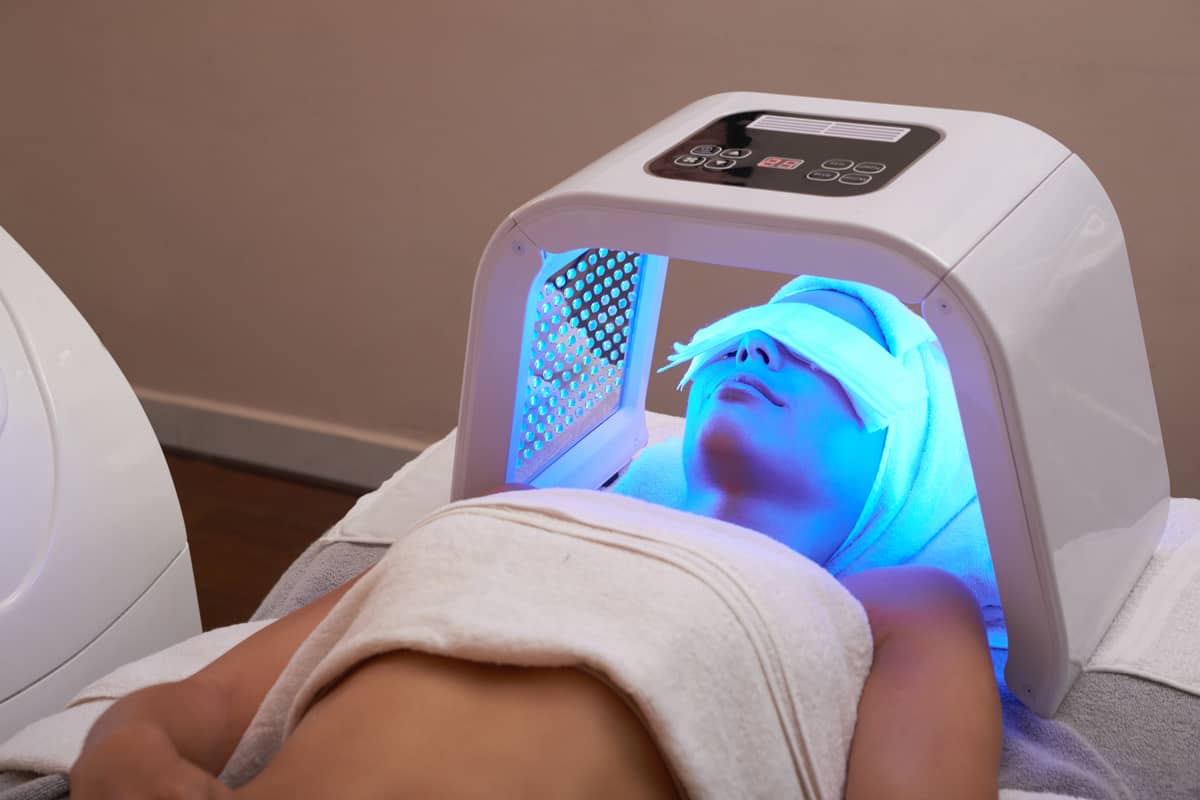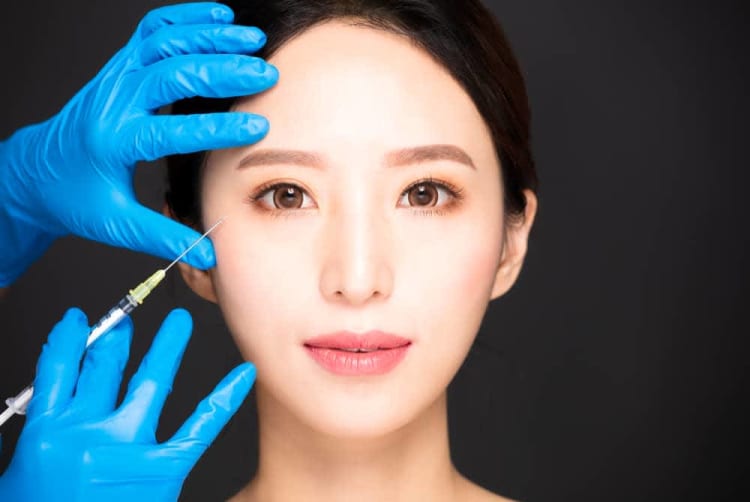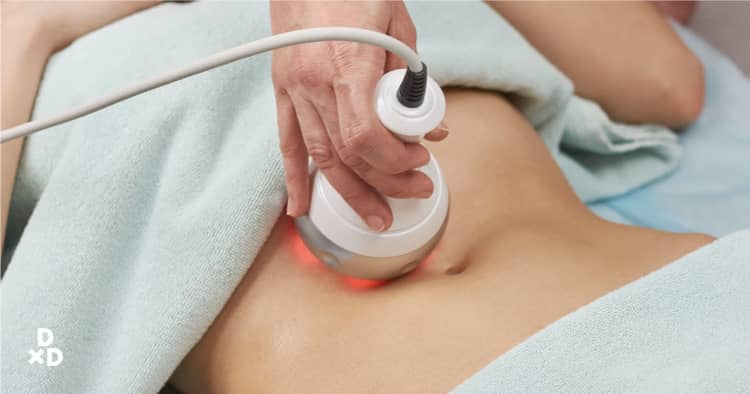These days, you can find an assortment of facial treatments out there, many of which use various forms of technology to deal with acne, improve skin quality and manage scars according to severity.
Some may work better than others while some are considered dangerous and inauthentic options that aren't worth the risk.
Many medi-spas and salons provide blue LED lights as part of facial treatment. Many people, however, typically associate blue light from electronics like laptops or mobile phones with detriment to the skin.
So, what's the difference? Are there any harmful side effects? Dr Por Yong Ming, elaborated and here's what he said.
What is blue light anyway?

Blue light refers to the electromagnetic waves that are on the wavelength range of around 450-495 nanometers. This type of blue light is also emitted from various devices that we use daily (and even from the sun).
However, blue light differs in intensity

An aesthetic physician can get down to the details about the very specific differences between blue lights used for facial treatments and blue light emitted by electronic screens.
Dr Por feels that they might differ mainly in intensity as well as the exact wavelengths emitted.
Blue light isn't as horrible as you might think
The fact is that blue light is a natural and commonly emitted wavelength and it isn't as bad as many people make it out to be.
With that being said, there are definitely concerns about excessive blue light at night which may disrupt sleep patterns.
Blue light from skin treatments aren't meant for the eyes

Perhaps one of the biggest differences between the two types of blue light is that the one emitted from electronic screens is meant to be shone into the eyes for display purposes.
Blue light used for treatment, on the other hand, aren't meant for the eyes. In fact, patients often wear protective eye covers while undergoing treatment.
The intensity for facial treatment is higher

The reason why people wear eye covers is that the intensity of blue light directed at the skin during treatment is generally higher compared to what is on device screens.
In many cases, too much of anything can be bad for you
In terms of whether blue light is harmful to the skin or eyes, it's probably best to consider that, in many cases, an excess of anything can be detrimental to your wellbeing.
Drinking too much water can make you sick, eating too much fatty food can lead to heart issues even if we do need these things in our lives.
Practice moderation and things will be fine
Just remember that moderation is the key to a well-balanced life. As long as you don't exceed limits that have been determined by research and thorough study, you shouldn't need to worry too much.
Conclusion
Therapeutic blue light devices for skin problems should be safe. Besides, as far as electronic screens and your eyes go, Dr Por has stated that there is still no clinical evidence that blue light emissions lead to bad effects on eye health.
Do seek advice from your doctor if you still have concerns about the facial treatments you're considering.
Read more: 8 Dermatologist Clinics in Singapore for Your Skin Concerns (2020)
Would you like to ask any related health questions?
You can Ask A Doctor right away, or view the complete list of Human Sessions.











